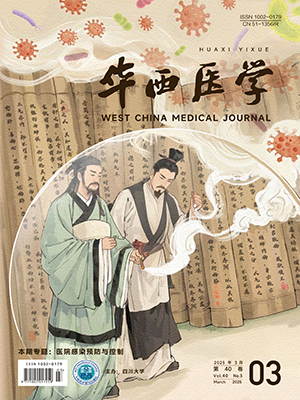| 1. |
Evans S, O’Loughlin E, Bruce J. Retrospective audit of blood transfusion and comparison with haemoglobin concentration in patients undergoing elective primary and revision lower limb arthroplasty. Anaesth Intensive Care, 2011, 39(3): 480-485.
|
| 2. |
Spahn DR. Anemia and patient blood management in hip andknee surgery: a systematic review of the literature. Anesthesiology, 2010, 113(2): 482-495.
|
| 3. |
Sehat KR, Evans R, Newman JH. How much blood is really lost in total knee arthroplasty? Correct blood loss management should take hidden loss into account. Knee, 2000, 7(3): 151-155.
|
| 4. |
Hill GE, Frawley WH, Griffith KE, et al. Allogeneic blood transfusion increases the risk of postoperative bacterial infection: a meta-analysis. J Trauma, 2003, 54(5): 908-914.
|
| 5. |
Raghavan M, Marik PE. Anemia, allogenic blood transfusion, and immunomodulation in the critically ill. Chest, 2005, 127(1): 295-307.
|
| 6. |
Wilson WJ. Intraoperative autologous transfusion in revision total hip arthroplasty. J Bone Joint Surg Am, 1989, 71(1): 8-14.
|
| 7. |
Beattie WS, Karkouti K, Wijeysundera DN. Risk associated with preoperative anemia in noncardiac surgery a single-center cohort study. Anesthesiology, 2009, 110(3): 574-581.
|
| 8. |
Musallam KM, Tamim HM, Richards T, et al. Preoperative anaemia and postoperative outcomes in non-cardiac surgery: a retrospective cohort study. Lancet, 2011, 378(980): 1396-1407.
|
| 9. |
庞清江, 王诚浩. 关节置换术围术期血液管理研究进展. 现代实用医学, 2018, 30(6): 701-704.
|
| 10. |
World Health Organization. Iron deficiency anaemia assessment, prevention and control: a guide for programme managers. Geneva: World Health Organization, 2001.
|
| 11. |
尤黎明, 吴瑛. 内科护理学. 4版. 北京: 人民卫生出版社, 2006: 312.
|
| 12. |
周宗科, 翁习生, 曲铁兵, 等. 中国髋、膝关节置换术加速康复——围术期管理策略专家共识. 中华骨与关节外科杂志, 2016, 9(1): 1-9.
|
| 13. |
曹国瑞, 张少云, 黄强, 等. 术后口服氨甲环酸在全髋关节置换术中的安全性和有效性研究. 中国矫形外科杂志, 2018, 26(1): 27-32.
|
| 14. |
周宗科, 翁习生, 向兵, 等. 中国髋、膝关节置换术加速康复——围术期贫血诊治专家共识. 中华骨与关节外科杂志, 2016, 9(1): 10-15.
|
| 15. |
Gwynne-Jones DP, Martin G, Crane C. Enhanced recovery after surgery for hip and knee replacements. Orthop Nurs, 2017, 6(3): 203-210.
|
| 16. |
赵建宁, 包倪荣. 人工关节置换术后并发症的防治与功能锻炼. 中国骨伤, 2011, 24(6): 445-447.
|
| 17. |
杨红, 李希斌, 谭洁, 等. 单侧全髋关节置换术围手术期总失血量的相关影响因素分析. 中国骨伤, 2017, 30(11): 1008-1012.
|
| 18. |
黄贵林, 赵玉阳, 勾宝晶. 术前血容量对骨科手术中血流动力学变化及术后恶心呕吐的影响. 中国药物经济学, 2014, 9(增刊1): 231-232.
|
| 19. |
王伟, 刘军, 周胜虎, 等. 人工关节置换术后假体周围感染与术前贫血的研究进展. 中国骨伤, 2018, 31(10): 971-975.
|
| 20. |
Küçükdurmaz F, Parvizi J. The prevention of periprosthetic joint infections. Open Orthop J, 2016, 10(11): 589.
|
| 21. |
王华锋, 刘恒旸, 王静成. 骨科大手术围手术期贫血状况及血液管理. 中华创伤骨科杂志, 2012, 14(6): 532-535.
|
| 22. |
袁磊, 包倪荣, 赵建宁. 髋关节置换术后隐性失血的新进展. 中国骨伤, 2015, 28(4): 378-382.
|




